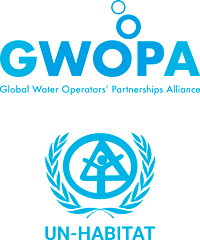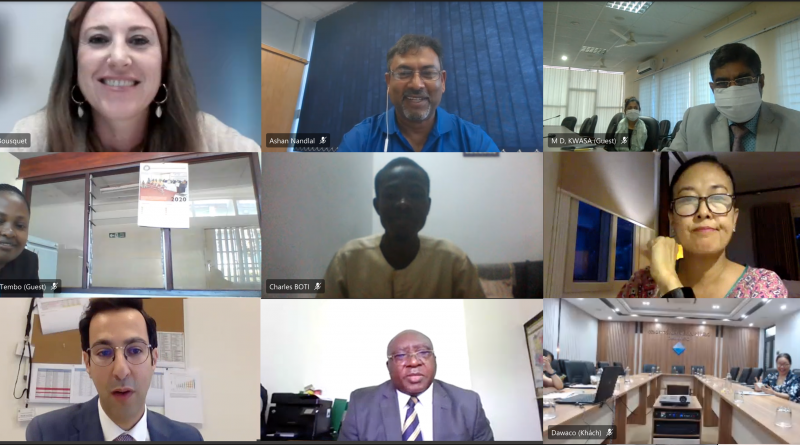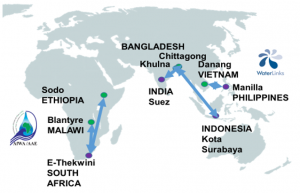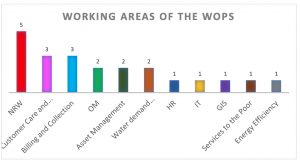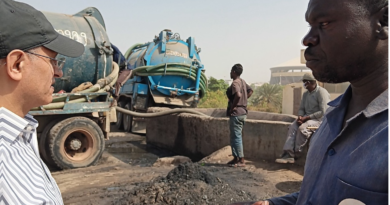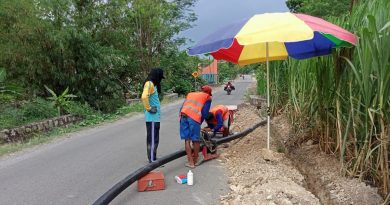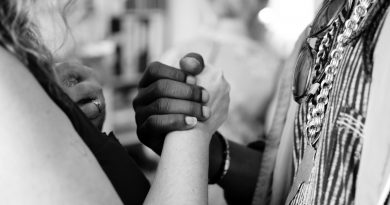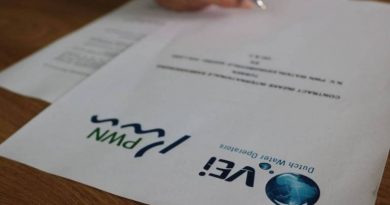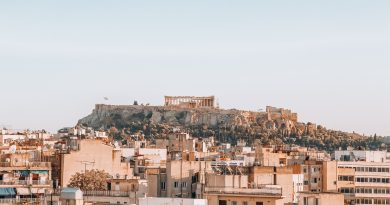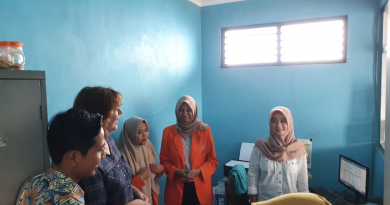Adapting peer partnerships to uncertain times: how the SIP WOPs are advancing during the pandemic
The Sustainability Improvement Plan WOP programme, funded by OPEC Fund for International Development (OFID), kicked off in September 2019 with the launch of five WOPs in Africa and Asia. Although diverse and varied, the recurring themes across many of these WOPs are non-revenue water, customer care, and billing and collection. Participating utilities are both experienced and new to WOPs and facilitation is being led by the African Water Association and WaterLinks.
Like almost all WOP initiatives, this programme has been affected by the COVID pandemic-travel restrictions and increased safety measures. To take stock of progress and promote the exchange of solutions, GWOPA convened a workshop of the programme partners in November. During the workshops, Mr. Musab Alomar, OFID, confirmed his organisation’s continued support for the initiative as part of their efforts to support water and sanitation operators attain the targets of the Sustainable Development Goal. He commended the timing of the workshop and the initiative to find commonalities and good practices across the two regions. The WOP facilitators for the programme, African Water Association and WaterLinks, also welcomed the opportunity to learn from the experiences in other continents to help advance the WOPs.
Luckily for the programme, for all the 5 WOPs, exchange visits took place before the introduction of travel bans or restrictions and these visits allowed staff to establish strong relationships and carefully select individuals from the mentor and mentee to build the partnership. According to the participants during the discussions, this has been key to maintaining momentum for the WOPs, when the teams have been forced to organise alternative online exchanges. Especially for the WOPs facilitated by WaterLinks, the use of online exchanges (video calls and email exchange) has already been tested and has allowed the mentees to advance on their Short-Term Action Plans.
Other success factors were mentioned: in some of the WOPs, specific teams within the utilities (both mentor and mentee) were created to collaborate on each working area. Participants highlighted that this allows for better and more focused technical exchanges as well as a more reasonable workload allocation that reduced the possibility of mentor ‘fatigue’. These factors have, been instrumental as most of the WOPs went fully online.
During the workshop, one mentor, Manila Water Utility presented lessons learned on mentoring during the pandemic, highlighting that assigning a dedicated manager to each working area ensured steady progress and allowed each team to define their next steps and timeline. In this WOP, an additional self-funded mentee utility also joined the initial technical exchanges, recognizing the potential of increasing capacity and demonstrating a strong interest in WOPs among Vietnamese operators.
Progress overview by WOP
For all the WOPs, at least the diagnosis visit took place in 2019 and the short term action plans were developed. For some WOPs, good progress have been made in the implementation of those action plans. In Asia, for 2 of the 3 WOPs facilitated by Waterlinks, mentors have been able to provide some online training and mentees were sufficiently advanced to continue implementing their short term action plans, after having selected the actions that were still doable under the circumstances. The other measures and actions planned will be implemented when travels will resume.
Khulna Water Supply and Sewerage Authority (Bangladesh) – Kota Surabaya (Indonesia)
The WOP was launched and two working areas were selected by the mentor and mentee. Initial fruitful and face-to-face exchanges took place prior to the pandemic and interpreters were used to overcome language barriers. Strict lockdown measures have however limited the advancement of the WOP as utility staff have not been working on-site however strong engagement from the Managing Director is helping the WOP progress.
Chittagong Water Supply (Bangladesh) and Sewerage Authority (Bangladesh) – Suez India
The diagnosis and exposure visits took place before the lockdown although progress has been hampered by the pandemic. Five initial working areas have been selected with a possible refinement pending.
Deanang Utility (Vietnam) – Manila Water (Philippines)
A successful exposure visit by nine utility staff was conducted before the pandemic, with staff from an additional Vietnamese operator attending as self-funded mentees. Four working areas were selected with progress on each activity advancing towards completion. Online meetings and training since the start of the pandemic have advanced this project considerably.
In Africa, remote communication has been more challenging and the projects have been significantly slowed down.
